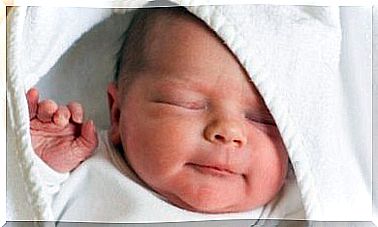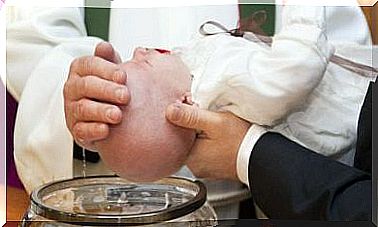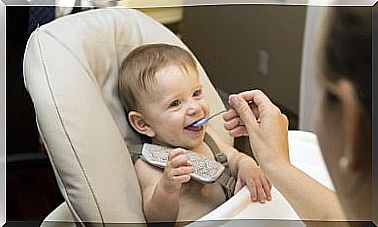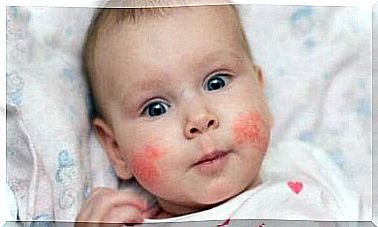Can I Have Dental Fillings While Pregnant?
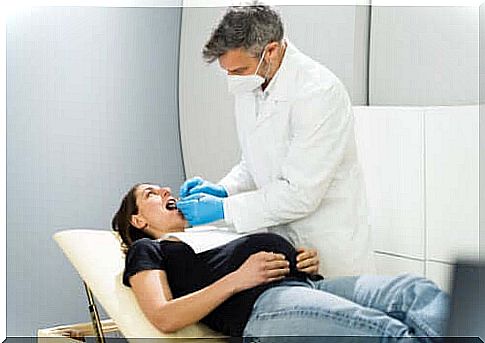
Knowing whether it is possible to have dental fillings during pregnancy is a common doubt among expectant mothers. Pregnant women are often afraid of going to the dentist. They believe that no procedure is safe at this stage.
The truth is that during pregnancy it is actually necessary to visit a dentist to avoid complications. The dentist checks the condition of your mouth, cleans it, applies fluoride and determines whether specific treatment is needed.
In addition, the dentist gives advice on specific care during this period in a woman’s life. And if an intervention is needed, the dentist will advise the expectant mother about the best time to do it. Keep reading to find out what happens to dental fillings during pregnancy.
The importance of visiting a dentist during pregnancy
As we have already mentioned, going to the dentist is vital for oral care during pregnancy. The professional will determine the needs in each specific case and, depending on this, treatments will be carried out at the most appropriate time.
Sometimes it is necessary to control certain conditions and make definitive treatments once the pregnancy is over. Other times, however, it is best to resolve simpler situations in time to avoid complications or complex therapies in the future.
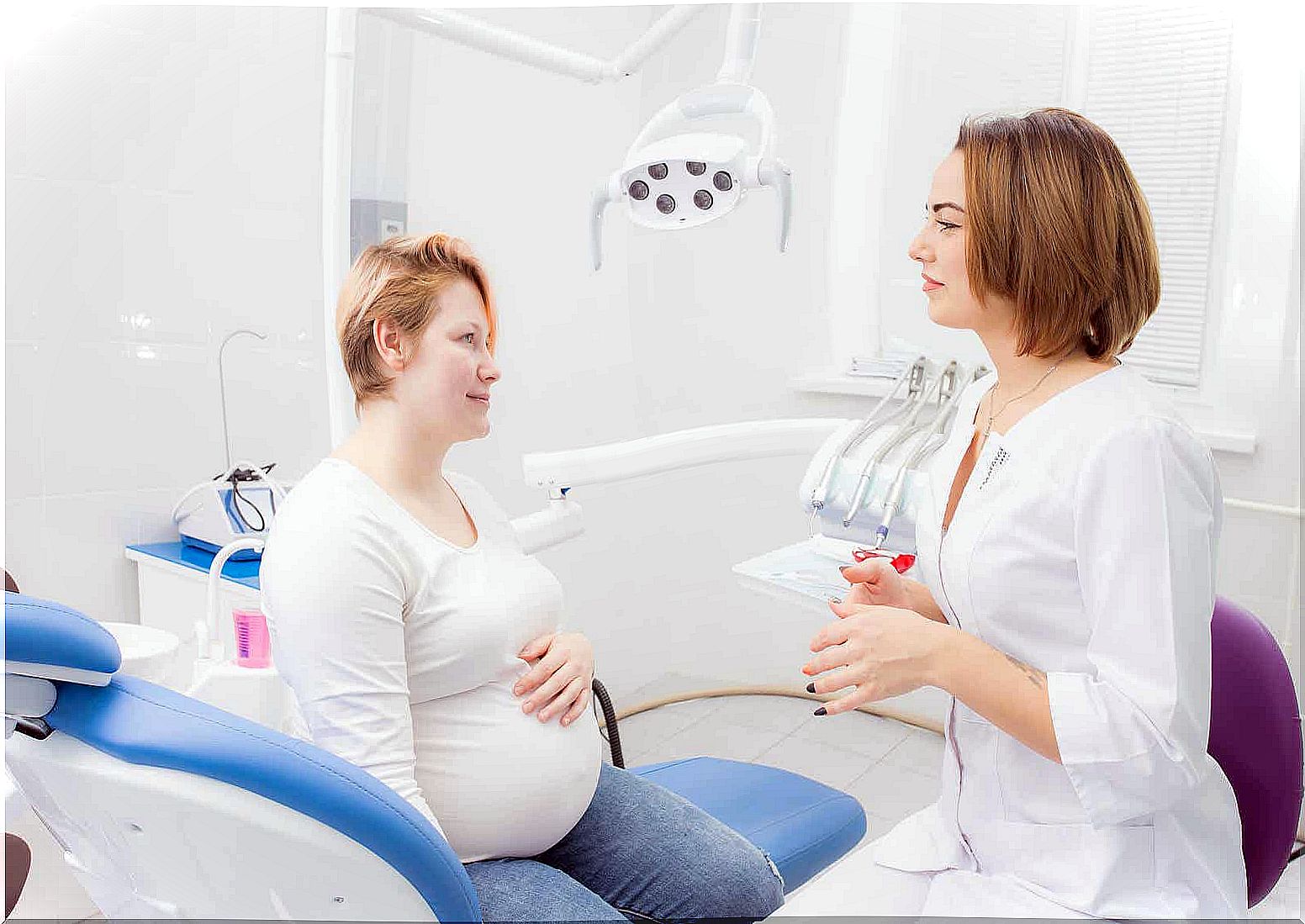
During pregnancy, changes occur that can affect the oral cavity. The nausea and vomiting of the first trimester, hormonal influences, dietary variations and discomfort when brushing due to gum disease promote the development of cavities.
This common problem consists of the loss of minerals from the teeth. It starts out looking like a simple stain, but as it progresses, it destroys the structure of the tooth. Without proper treatment, cavities can cause pain and infection.
Is it safe to get dental fillings during pregnancy?
Fillings can be helpful in treating rotten teeth. They consist of removing the damaged tissue. The dentist then replaces it with an artificial material that restores the shape and function of the tooth.
Dental fillings during pregnancy are simple treatments that a dentist can perform safely. This therapy does not affect the fetus or the mother. Therefore, with this simple procedure it is possible to check active cavities. If these are not resolved, they can progress to infections or intense pain that alters the pregnancy. These complications can include contractions, premature births, or low birth weight babies.
What should you pay attention to when getting dental fillings during pregnancy?
When visiting the dentist , the pregnant woman should always inform or remind the dentist of her condition. The dentist will consider several factors to determine the type of treatment to perform. These include the duration of the pregnancy, the state of health of the mother and the needs of the mouth.
While, as mentioned above, fillings are a safe treatment during pregnancy, there are certain considerations that dentists generally take into account. These are as follows.
timing
The second trimester is the ideal time for dental fillings during pregnancy. At this stage, nausea, vomiting and the time of formation of fetal organs have already passed. Therefore, in the first three months of pregnancy, only urgent, non-delayed procedures should be performed. From the third month, the mother will sit more comfortably on the chair. Her belly hasn’t grown too much yet. In the last trimester, long periods of sitting in the same position plus the weight and size of the abdomen can complicate the process.
Anesthesia when you get dental fillings
The use of local anesthesia in low doses does not harm the fetus. In cases of underlying disease or conditions related to pregnancy, the dentist will choose a milder drug or one without vasoconstrictors to avoid complications.
X-rays
They are generally not necessary for this type of procedure. However, if they are unavoidable because the professional deems it necessary, the doses of radiation dentistry are not harmful to the fetus. In any case, the professional should place a lead shield over the abdomen and use as little radiation as possible. Doctors should avoid orthopantomography. These are X-rays of the jaws with much higher radiation exposure.
Avoid amalgam fillings
Although there is not enough evidence to prove that amalgam is harmful to the fetus, it is not used during pregnancy. These restorations are made with an alloy of silver and mercury, and it is the latter element that should be avoided during pregnancy. The dentist has other safer and more aesthetic materials to restore the teeth.
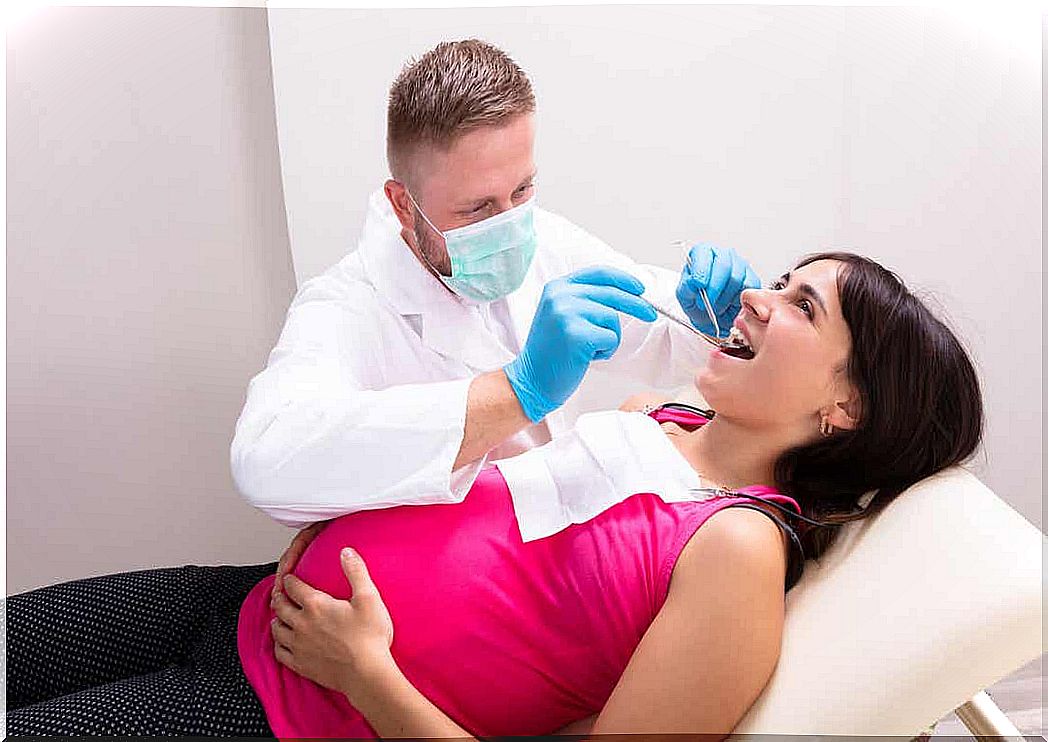
Oral health during pregnancy is fundamental
We have already mentioned that the changes inherent in pregnancy can predispose women to oral diseases. Oral care is essential to avoid discomfort and more serious consequences.
Brushing teeth and gums three times a day with a soft bristle brush and fluoride toothpaste is vital to remove bacterial plaque. This must be supplemented with the use of dental floss. Pregnant women should not neglect these steps, even if they experience gagging or tenderness. The build-up of bacteria in the mouth can make the condition worse.
A healthy, balanced and varied diet should also be taken into account. Foods high in sugar should be avoided. They are not only unhealthy, but also promote the development of cavities.
It is also necessary to visit the dentist regularly during pregnancy. One visit per trimester is recommended, although in an emergency you should contact us immediately. By going to the dentist with confidence and following their recommendations, pregnant women can keep their mouths healthy during this important phase.


